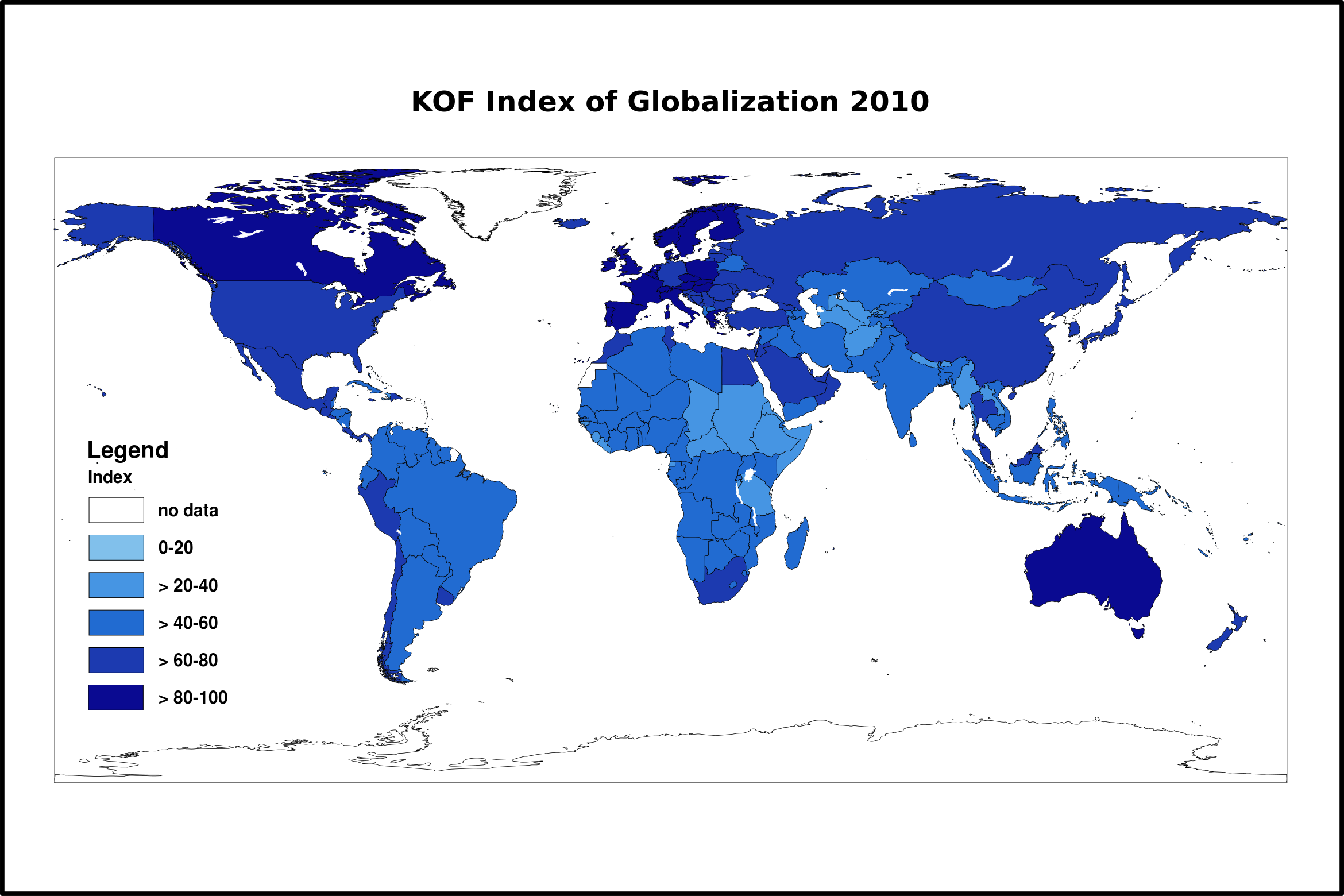Global participation
- Students should be able to describe and evaluate the KOF index, as a measure of global interaction, and describe how this index may be represented spatially.
Think – Using the IB Geography definition of globalization – what data could be collected to help produce an ‘index of globalization’?
“Globalization: The growing interdependence of countries worldwide through the increasing volume and variety of cross-border transactions in goods and services and of international capital flows, and through the more rapid and widespread diffusion of technology.” IBO
KOF Index slideshow
Evaluating the KOF index
Advantages & disadvantages of the KOF index
Global Core & Periphery
The spatial patterns of global interactions
- Students should be able to discuss the spatial pattern of global interactions through the mapping of core areas at the focus of interaction (network hubs/nodes), the peripheries and areas relatively unaffected by these interactions.
The idea of core & periphery looks at the relationships between central areas (the core) and those beyond it (the periphery). Core areas typically have greater wealth and growth potential than those in the periphery. Core areas are often characterized by high productivity rates, advanced technical know-how and high rates of innovation. They are also seen as being economically and socially dynamic places. As result capital and labour often flows towards core areas from those in the periphery resulting in a disadvantaged periphery. Over time core areas increase their dominance and power over peripheral areas.
 |
 |
 |
 |
 |
Identifying the Core
The Clark-Fisher model shows how the relative importance of the sectors of employment change over time. Countries from the Core are typically in the post-industrial phase where employment in the quaternary sector (highly skilled service industries like computer programming or management consulting) is increases at the expense of the other three sectors of the economy. The semi-periphery is represented by those in the industrial phase whilst countries in the periphery would have employment structures similar to those seen in the pre-industrial stage.

The Clark-Fisher Model
Click this link to discover why many people call London a global city.
The AT Kearney Global City Index ranks the world’s global cities – AT Kearney’s 2015 data.
 |
 |
Container ports as global hubs – worldshipping.org
Global Financial hubs – Global Financial Centres Index
Number of people per McDonald’s restaurant – Excel spreadsheet from The Guardian
Busiest International Airports – Airports Council International
% of individuals using the Internet – Individuals_Internet_2000-2014 from itc.int
Average Internet connection speeds –
Fastest average speeds (tables from akamai.com).

